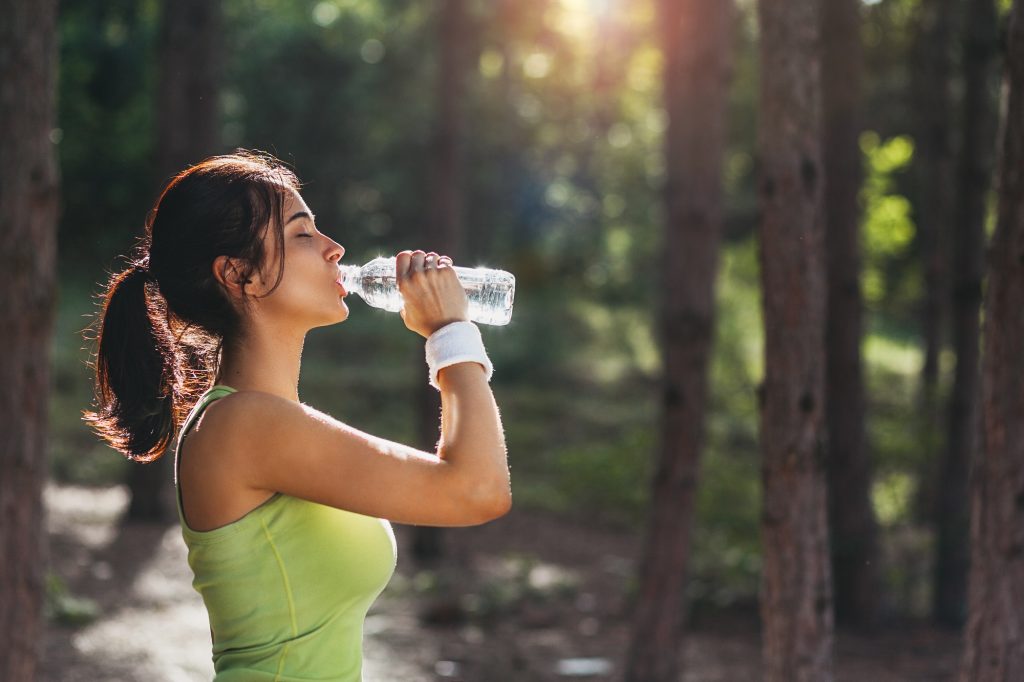Many athletes swear by sports drinks, while others only drink water. Here are the most important hydration questions and their answers.
How much should athletes drink?
That depends on the duration, type and intensity of the physical strain. External conditions such as heat and humidity are also crucial factors. As a rule of thumb: in addition to the basic amount of 1 – 2 litres per day, 0.4 – 0.8 litres per hour of activity should be drunk. During intense exertion such as running, the body cannot absorb more than 1 litre of fluid per hour.
What must a sports drink contain?
Primarily water, salt and carbohydrates in a proportion of around 6 – 8%, which corresponds to 60 – 80 grams per litre. There are short-, medium- or long-chain carbohydrates, which are available to the body more quickly or more slowly due to their design. Every manufacturer has its own mixture for its sports drink. Usually vitamins, artificial flavours, stimulants (caffeine) or other substances such as L-carnitine are added. Most commercial sports drinks contain too little salt for taste reasons.
Can I mix my own sports drink?
Yes, even quite simply. With water, salt and maltodextrin powder, which is available in specialist shops and pharmacies. Maltodextrin is a tasteless, pure carbohydrate powder. Tip: Add syrup for a better taste.
How important is salt?
In general, it is essential for life and in sport, especially during long periods of stress (from about two hours), it is a decisive factor for optimal performance. As a recommendation: drinks should contain around 2 – 3 grams of salt per litre.
How can salt be taken in addition to a drink?
For example by means of bouillon or salt tablets. In many competitions, bouillon is the only salty offer at catering outlets. Normal table salt can be added to sports drinks or water. Such saline tablets are available in most pharmacies
Can I drink too much during a competition?
Although this happens very rarely, it can happen. For example, when very slow marathon runners drink 2-3 litres or more per hour. In this case the blood is strongly diluted, reducing the sodium concentration in the blood, and can lead to a deficit (hyponatremia).
When should you drink before, during and after exercise?
In the days before an intense exertion more than usual. In addition, immediately before sport (competition) 3-5 dl of a carbohydrate-containing drink. During exercise 1.5 – 2 dl every 15 minutes. For exertion of up to 1 hour it is not necessary to drink during sport activity. After 2 hours of exertion the drinks should contain salt. Immediately after sport you should drink easily digestible drinks rich in carbohydrates and sodium. The general rule during sport is: drink before you get thirsty.
Text from FITforLIFE– this blog post was made available to us by the Swiss magazine FIT for LIFE. If you want to read regularly informative articles in the field of running and endurance sports, then click here.

